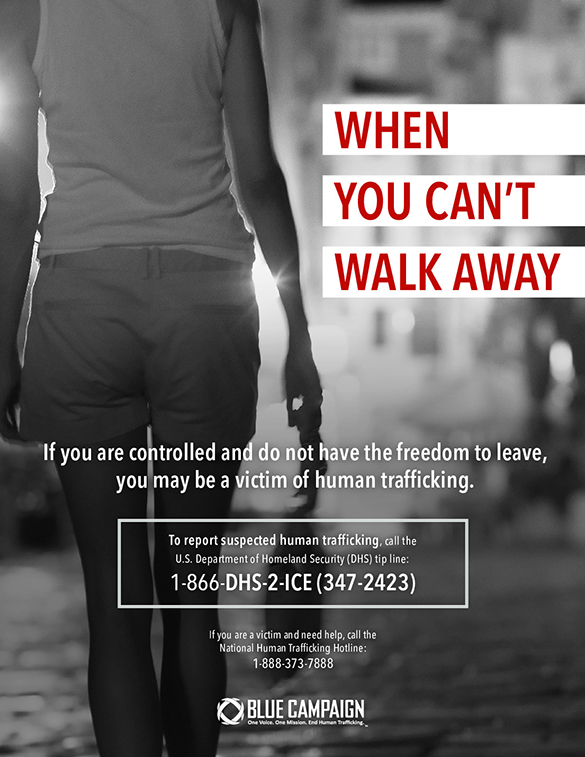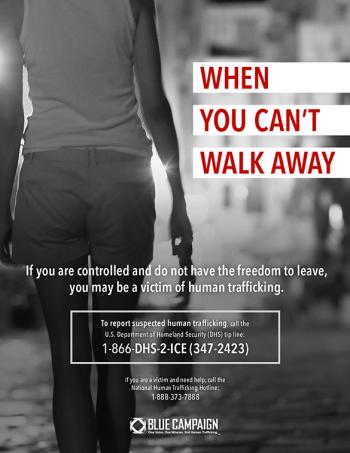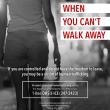'It's never as simple as leaving': Sex trafficking in Maine
This is part two of a two-part series in recognition of Human Trafficking Awareness Month.
The facts
Sex trafficking is when a person is induced to perform a commercial sex actthrough force, fraud, or coercion, or when theperson performing the actis under 18.While sex trafficking can involve movement across state or country borders (human smuggling), that is not necessary for it to be considered sex trafficking.
“Most often, in Maine, trafficking happens within the community, within the county, within the state,” said Lori Rodriguez, education and outreach director of New Hope Midcoast. As a domestic violence resource center, New Hope Midcoast serves Lincoln, Sagadahoc, Knox and Waldo counties.
An estimated 300-400 cases of sex trafficking occur in the state annually, according to Maine Sex Trafficking & Exploitation Network. The anti-trafficking services offered by Portland’s Preble Street organization help 100-150 survivors of sex and labor trafficking a year, a third of whom are minors. Director Hailey Virusso explained that, like with labor trafficking, unmet social needs such as poverty, homelessness and food insecurity can make people more vulnerable to sex trafficking.
While trafficking can happen to anyone, minority groups are statistically more likely to have unmet social needs due to systematic issues such as experienced by Black people, Indigenous people, Persons of Color (BIPOC), or LGBTQ adults and youth.
In 2012, Preble Street surveyed 80 homeless and street-involved women and youth, and 26% reported being asked to have sex with a stranger for payment.Substance use can also be a factor as that same study found that 24% were offered drugs in exchange for sex.
However, despite perceptions that strangers carry out trafficking, it can also occur within intimate relationships. Sometimes traffickers pose as partners, or victims will identify as having been in a relationship with their traffickers, even if the perpetrator doesn't view it that way. Family members can also traffic other family members.
“Things are not always so clear cut,” said Rodriquez.
This is why New Hope Midcoast trains itsstaffto be able to recognize signs of trafficking and offers that training to other professionals, alongside their standard domestic violence advocacy work. They also partner with an interdisciplinary network of forensic nurses, sexual assault advocates and local police to help support trafficking survivors.
Rodriquezemphasized the importance of continuum of care, helping victims navigatedifferent agencies as they move forward. The key is supporting survivors, not making decisions for them.
“What's most important is that we are not replicating the conditions of the trafficking or abuse that they're experiencing,” said Rodriquez. She said abusers often tell victims they'reunintelligent anddon't know what's best for themselves.
“(We want) to counter that message by telling them the opposite, telling them that what happens in your life is in your control. Nobody should be able to make decisions for you, and that includes service providers.”
Child sex trafficking
Every year, Shared Hope International releases report cards on each state'slegislative framework for addressing child and youth sex trafficking. While this year’s data was not available at publication,Maine received an “F” in 2023.Virusso attributes part of this to Maine’s lack of “safe harbor” lawsthat prohibit minors from being charged with “prostitution.”
However, Virusso said this is not something she often sees. Maine became the first state to decriminalize prostitution, in October 2023– for those selling sexual services, not those buying. So even though Maine doesn'texplicitly have safe harbor laws on the books, the likelihood that a child would be prosecuted for a commercial sex act is slim, she said.
Since a third of survivors of sex and labor trafficking Preble Streetsees are under 18, it was recently awarded a grant to expand its outreach services for youth. This has included speaking in schools, especially in York, Cumberland, Androscoggin and Sagadahoc counties, and working to increase identification of male and LGBTQ youth survivors who may not come forward due to stigma or lack of social support.
“It’s new funding but not new work,” said Virusso.
She also discussed the changing dynamics the organization is seeing, particularly the increase of 11- 13-year-olds being referred to its services.While sex trafficking often involves an in-person element, it can also be the online exchange of sexual images for some monetary reward.
Virusso said many of these new cases have come from these online interactions. In conjunction with the rise of social media, part of the issue is the trickle-down effects of the pandemic which saw this age grouplogging on and getting exposed to adult content earlier.It's also common for survivors to have online friendships with one another, regardless of their location.
“All of those same root causes that increase risk for trafficking for adults are present for youth as well, except you have differentconsiderationsbecause their ability to makedecisions is already compromised by brain development,” explained Virusso.
Part of Preble Street’s work with schools involves educating about the online side of trafficking, which has helped young people get identified and supported more quickly.
What can be done?
Just as vulnerability to labor and sex trafficking spring from the same lack of social supports,the solutions for each problem are also the same. As previously reported in the Register, Preble Street provides training to other sectors to help people get identified, such as the healthcare industry as over two-thirds of victims will interact with a healthcare professional while being trafficked. “Survivors of trafficking are people, and people come in contact with all sorts of systems,” explained Virusso.
The organization also advocates for additional funding and access to social services that can help in its mission to help survivors. Without a social safety net, there is a possibility people could fall into the same conditions that first made them vulnerable to trafficking.
“It's never as simple as leaving. I cannot stress that enough,” said Virusso.
Preble Street will host an event in honor of Human Trafficking Awareness Month at the Healing Center: 55 Portland St., Portland on Jan. 22, 3-5 p.m. All are welcome.
Resources
National Human Trafficking 24/7 Hotline: 1-888-373-7888, Text: 233733
Preble Street: (207) 775-0026. Not sure if you’re experiencing exploitation or trafficking? Take the online self-identification on the organization's website.
New Hope Midcoast 24/7 Hotline: 1-800-522-3304

























